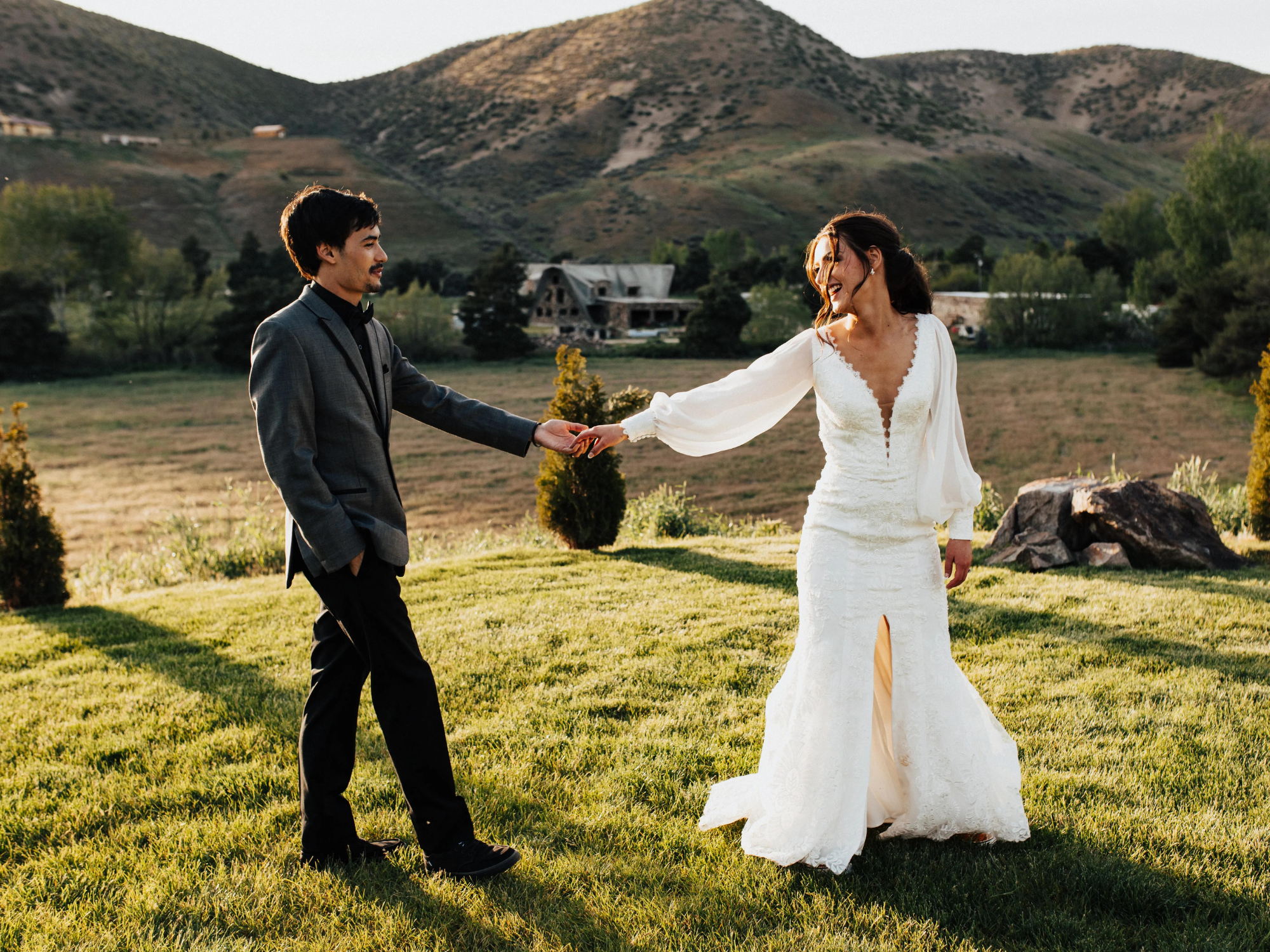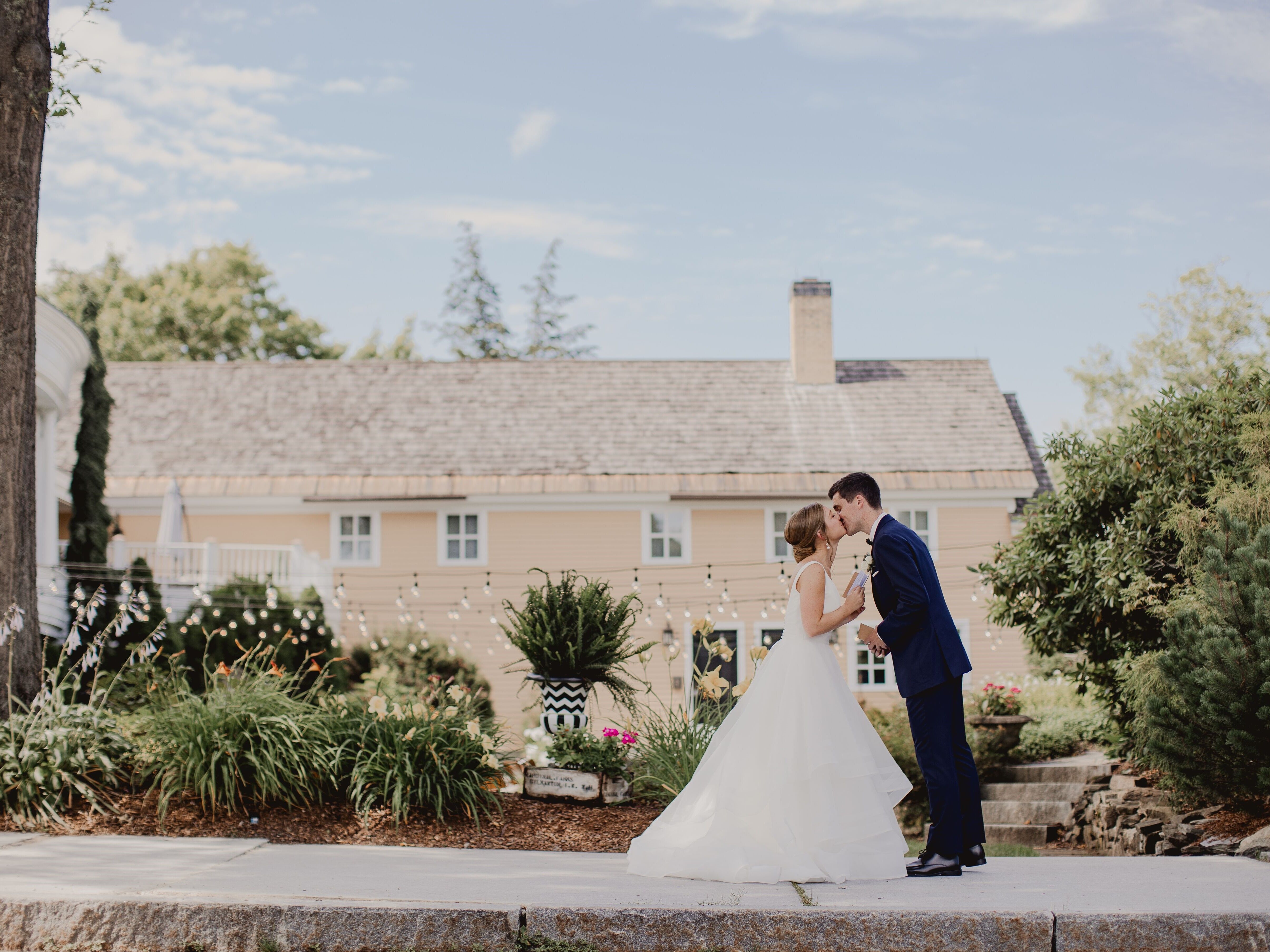Wedding Catering Contracts: A Lawyer's Must-Have Points
On the list of vendors you'll hire in preparation for your wedding day, a wedding caterer will be one of the most important. After all, you want to make sure that there's plenty of food at your wedding—and delicious food at that. To lock a wedding caterer in, and sure that all parties are protected should anything go wrong, a wedding catering contract is a must-have.
"A wedding catering contract, often referred to as a vendor or service agreement, serves to safeguard the interests of the marrying couple, guaranteeing the services, but also meticulously delineates what will be provided," explains Leah Wise, attorney and founder and owner of Leah Wise Law Firm, PLLC, in South Texas. "This level of detail not only ensures that the couple receives precisely what they've invested in, but it also sets forth clear terms regarding payments, as well as policies for cancellation and rescheduling, should unforeseen circumstances arise."
A wedding catering contract also serves to protect the interests of the wedding caterer. It's their first line of protection when it comes to their business, explains Kunbi Odubogun, attorney and founder of Oduberg Law Firm. "As a caterer your contract will detail your services, how and when you'll get paid, what happens if they change things, etc," Odubogun explains. "What happens if availability changes, if ingredient prices spike, if plans for the wedding change, or if something unexpectedly happened to you?" The wedding catering contract ensures there's a party legally responsible in the most common scenarios and beyond.
Before you sign a wedding catering contract, make sure it includes these key points, according to lawyers.
1. Description of Services
Odubogun recommends making sure that the contract details all of the services the caterer will provide, including menu options, number of courses, beverages, hors d'oeuvres, desserts, etc. It's also a good idea to specify if the catering includes staff (chefs, servers, bartenders) and their roles as well as for how many guests the catering company can and will serve—from what time to what time. "A clear description of services will spare both sides a lot of stress as it helps remove confusion about what is being provided and what isn't," Odubogun says.
2. Payment Terms
It's important to have a clear outline on payments, retainers and how refunds or cancellations are handled in the contract, notes Odubogun. She recommends that this section includes a total cost of catering services, including a breakdown of charges, a payment schedule including deposit, interim payments and final payments and payment methods accepted (credit card, check, bank transfer, etc.). This section should also specify the consequences, if any, of late payments or bounced checks.
3. Cancellation and Rescheduling Policies
This section should specify the conditions under which the contract can be canceled or rescheduled, including any refund policies, explains Wise. "Outline how much notice is required for changes and what happens in the event of unforeseen circumstances, like illness or emergencies," she says. "This provides clarity on potential disruptions to the event."
4. Event Details
You should always include the basic details of the event, including guest count as well as the desired timeline of the event, including when catering staff will arrive, meal service times and when they will depart, according to Wise. In this section you can also add in the equipment requirements (tables, chairs, linens, dinnerware, etc.) and any requirements for the catering area at the venue (kitchen access, power supply, etc.).
5. Liability and Insurance
This section details your liability insurance coverage. "Address liability issues by outlining responsibilities in case of accidents or damage during the performance and specify whether the musicians carry liability insurance and require them to provide proof of insurance," says Wise. "This protects both the couple and the musicians in case of unexpected incidents."
6. Food Safety and Allergies
Odubogun recommends ensuring that there's a mention of how food safety and allergies are handled to keep everyone safe and enjoying the day as well as any other specific terms or conditions agreed upon between you and the caterer.
7. Signatures and Dates
At the very end of the wedding catering contract, be sure that there's a section for both parties to sign and date the contract, indicating their acceptance of the terms and conditions.
























